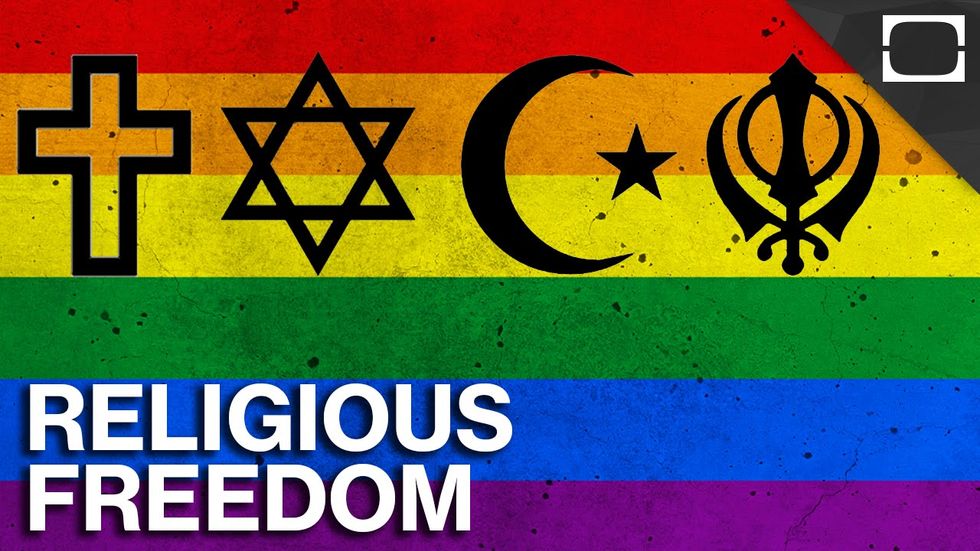If you are unaware, Jeff Sessions and the Department of Justice recently released new guidelines that dictate how workers in the Justice Department should approach issues with potential religious implications. Unsurprisingly, most of these issues were related to gender identity, sexual orientation, and women's health, but were coalesced under the broad American quilt known as "religious liberty." Ugh.
Let's get this out of the way: I grew up in the Baptist tradition. So, while I despise pretty much everything that the Southern Baptist Church espouses, classical Baptist beliefs hinge on the idea that each person has the human right and freedom to make decisions about anything spiritual without feeling pressure from some kind of human authority. As such, Baptist churches have traditionally been highly in favor of the separation of church and state in conjunction with the legal right to religious liberty.
Unfortunately, the vast majority of people in the United States have no idea what religious liberty actually is. If you were to ask Jeff Sessions, Roy Moore, or pretty much any other Conservative Evangelical/Fundamentalist Christian what they thought religious liberty entailed, they would probably say that religious freedom is the right to live out their faith in whatever way they wished without negative repercussions. There's a problem with that interpretation of religious liberty though: it's not Constitutional.
The concept of "religious liberty" is enshrined in the First Amendment to the United States Constitution in two separate but related clauses: the Establishment Clause and the Free Exercise Clause. The Establishment Clause prohibits the government from establishing an official religion or from passing laws that unduly favor one religious tradition over another. The Free Exercise Clause prohibits the government from unduly burdening or preventing the individual or organized religious belief or practice of that belief. There's a twist to the Free Exercise Clause that complicates things, however.
Historically, the American court system has held that while the Constitution does protect religious behavior, not all religious behaviors are protected all the time. If a behavior stemming from a religious belief is considered a criminal act or is conducive to the public peace, this means that while you have the right to believe whatever you want, acting on that belief is not protected if it infringes on another person's life or well-being or breaks the law in some way. This means that even if polygamy or animal sacrifice is central to your religious beliefs if these practices are already illegal in a secular context, then your religious belief does not supersede the law. Notice I used the phrase "central to your religious beliefs." The Constitution does not appear to consistently protect action based on religious beliefs that are not tenets or requirements to participate in the faith.
So, here's my point. People today seem to think that "religious freedom" means that if they say or think that it is their literal God-given right to do something that they can do it without consequence. That is total crap. Religious liberty is not the right to do anything based on a religious belief, but the right to have a religious belief and act on it by the law as long as it does not limit your ability act out central tenets. Last I checked, discrimination and restricting access to healthcare is not a fundamental tenet of any respected religion, and if anyone wants to argue that it is in their religion, then that's not freedom. It's just sad.
















